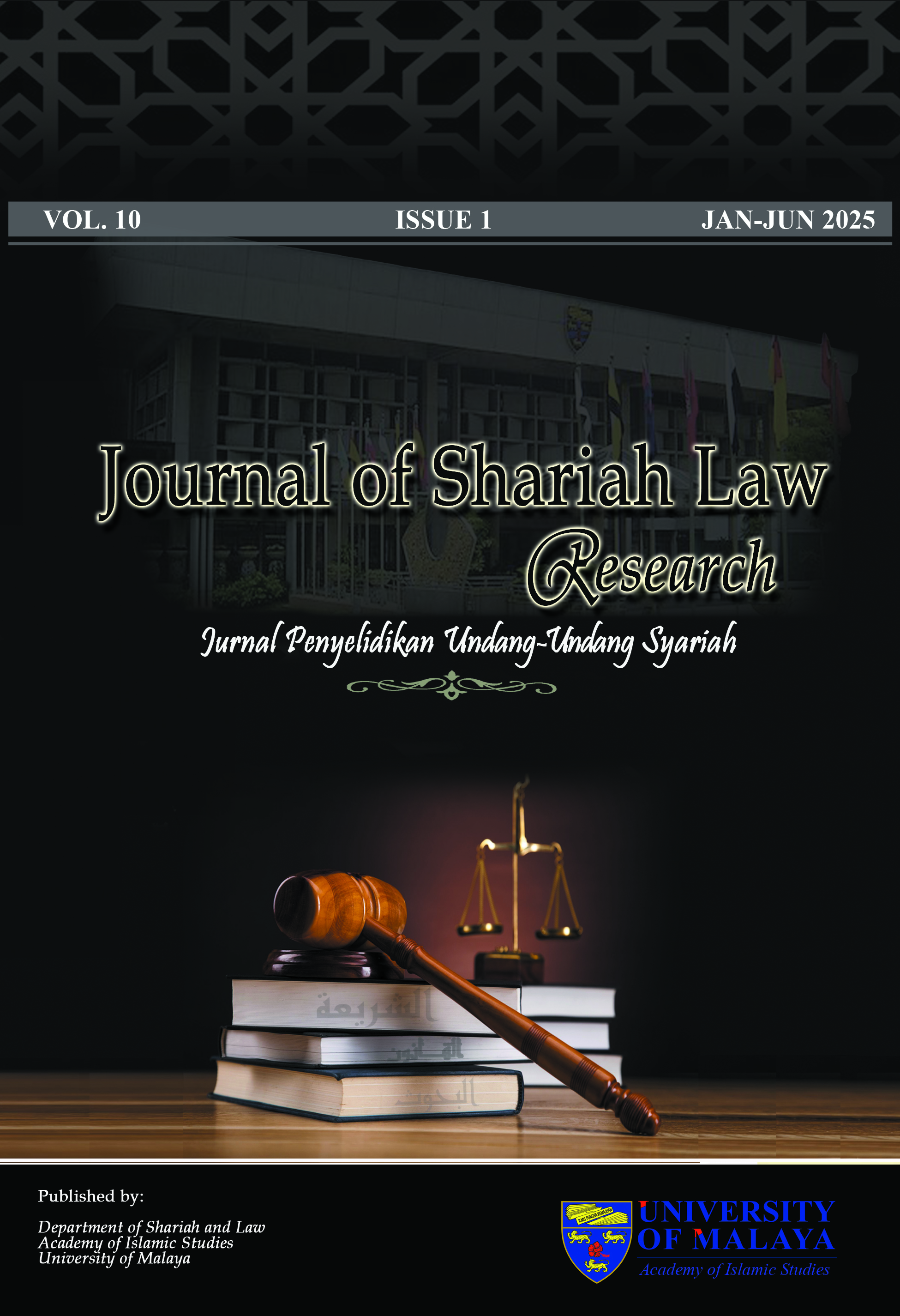ANALYSING THE POSITION OF THE LIBYAN INHERITANCE LAW ON PREVENTING WOMEN FROM THEIR INHERITANCE IN THE LIGHT OF SHARIAH
Keywords:
inheritance, Libyan law, Islamic Shariah, women’s rights, legal reformAbstract
This study aims to investigate the position of Libyan inheritance law on preventing women’s rights to inheritance in the light of Islamic Shariah. The problem addressed in this study is the misalignment between Libyan inheritance law, particularly Law No. 6 of 1959, and Islamic Shariah principles, which negatively impact women’s inheritance rights. The study highlights the importance of addressing systemic obstacles and societal misconceptions regarding women’s inheritance rights. Doing so aims to pave the way for a more equitable distribution of inheritance. It employs a library-based research methodology and uses content analysis to examine and interpret relevant data. The results reveal that Islamic Shariah provides a transparent and equitable system for distributing property and assets of the deceased, ensuring women’s rights are safeguarded through predefined formulas. Despite this, the findings indicate that misconceptions and cultural practices often overshadow these principles. Although Libyan Law No. 6 of 1959 offers some protection to women, gaps still require urgent legislative reforms. Based on these findings, the study strongly recommends modernising and clarifying existing laws to better align with Islamic principles and effectively protect women’s inheritance rights in Libya, emphasizing the urgent need for these reforms.
Downloads
References
Al-Hadad, N. F. A. (2016). Working women and their rights in the workplace: International human rights and its impact on Libyan law. Routledge.
Ahmed, L. (2021). Women and gender in Islam: Historical roots of a modern debate. Veritas Paperbacks.
Almutawa, A., & Magliveras, K. (2021). Enforcing women’s rights under the Arab Charter on human rights 2004. The International Journal of Human Rights, 25(8), 1258-1284.
Berkah, D., & Sawarjuwono, T. (2019). Inheritance wealth distribution model and its implication to economy. Humanities & Social Sciences Reviews, 7(3), 1-10.
Benkhashem, A. F. A., Mat Noor Mat Zain, D., Yusoff, A. F. J., & Ghani, N. A. R. N. A. (2023). Responsibility State In Islamic Theology And Libyan Law In The Event Of An Epidemic Covid-19 Model Overview. Journal of Positive School Psychology, 41-53.
Basri, H., & Azani, M. (2018). Inheritance Practice of Community Society in Bantan District Bengkalis Regency Based on Islamic Law. In IOP Conference Series: Earth and Environmental Science (Vol. 175, No. 1, p. 012048). IOP Publishing.
Bowen, J. (2018). Anthropology and Islamic law. In The Oxford Handbook of Islamic Law (p. 133). Oxford: Oxford University Press.
Bahrami-Rad, D. (2021). Keeping it in the family: Female inheritance, inmarriage, and the status of women. Journal of Development Economics, 153, 102714.
Carlisle, J., & Carlisle, J. (2019). Tripoli’s Family Court: The Judge in Post-Revolution 2013. Muslim Divorce in the Middle East: Contesting Gender in the Contemporary Courts, 97-120.
Disemadi, H. S. (2019). Adultery Child Status In Islamic Law And In The Civil Code. Legal Standing: Jurnal Ilmu Hukum, 3(2), 20-31.
Glaze, M. (2018). Historical Determinism and Women’s Rights in Sharia Law. Case W. Res. J. Int’l L., 50, 349.
Hamzah, D. A. (2019). Abolition of Slavery, Human Trafficking and Forced Labour Pespectives of International Law and Islamic Law–the Libya of the Post-Gaddafi Regime as a Case Study. Journal of Law, Society and Development, 6(1), 43-pages.
Haque, M. F., Solihin, S. M., Ahmad, N., & Jani, M. S. (2020). Women Rights to Inheritance in Muslim Family Law: An Analytical Study. International Journal of Islamic Business & Management, 4(1), 15-26.
Harari, M. (2019). Women’s inheritance rights and bargaining power: Evidence from Kenya. Economic Development and Cultural Change, 68(1), 189-238.
Ibrahim, S. The Role of Sharia in Lawmaking: The Case of Libya. Real Legal Certainty and Its Relevance, 213.
Johansson-Nogués, E. (2013). Gendering the Arab Spring? Rights and (in) security of Tunisian, Egyptian and Libyan women. Security Dialogue, 44(5-6), 393-409.
Judiasih, S. D., & Fakhriah, E. L. (2018). Inheritance law system: Considering the pluralism of customary law in Indonesia. Padjadjaran Jurnal Ilmu Hukum (Journal of Law), 5(2), 315-330.
Kraus, S., Ribeiro-Soriano, D., & Schüssler, M. (2018). Fuzzy-set qualitative comparative analysis (fsQCA) in entrepreneurship and innovation research–the rise of a method. International Entrepreneurship and Management Journal, 14, 15-33.
Langhi, Z. (2016). Gender and State-Building in Libya: Towards A Politics of Inclusion. In Gender, Women and the Arab Spring (pp. 70-80). Routledge.
Pradeep, M. D. (2019). Legal Research-Descriptive Analysis on Doctrinal Methodology. International Journal of Management, Technology, and Social Sciences (IJMTS), 4(2), 95-103.
Tarchi, A. (2022). A ‘catastrophic consequence’: Fascism’s debate on the legal status of Libyans and the issue of mixed marriages (1938–1939). Postcolonial Studies, 25(4), 527-544.
Tono, S., Syibly, M. R., Mu’allim, A., Nurozi, A., & Purwanto, M. R. (2019). The harmonious relationship between Minangkabau custom and Islam in the distribution of inheritance. Al-Shajarah: Journal of the International Institute of Islamic Thought and Civilization (ISTAC), 39-55.
Tracy, S. J. (2019). Qualitative research methods: Collecting evidence, crafting analysis, communicating impact. John Wiley & Sons.



